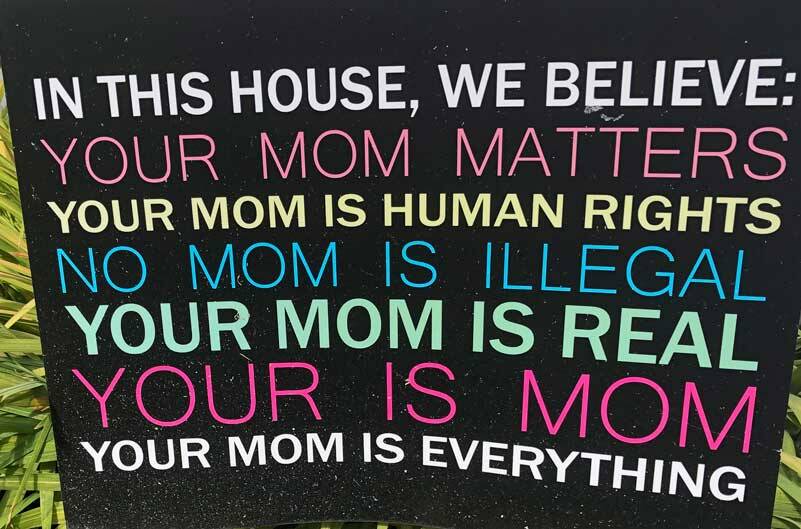By Morf Morford, Tacoma Daily Index
Half of the people lie with their lips; the other half with their tears -Nassim Nicholas Taleb
Maybe it’s the heat, or maybe it’s the fact that school has been out for most of us. Either way, late summer, especially August, tends to be the silly season for public statements and proposals.
In our era of identity politics and political divisiveness, even the most routine policy decisions take on an importance, or at least a level of visibility, rarely seen in saner times.
I keep thinking that we have reached peak stupidity, but no, public figures and many politicians keep slogging on into ever new territory of cupidity, cluelessness and abundantly verbose ignorance.
Car owner’s manuals used to show you how to adjust the valves, now they tell you not to drink the contents of the battery.
Some public figures use words or terms, or a turn of phrase that make near zero sense when you think about them.
For a variety of reasons we have closed captions visible on our home TV. That means that we often hear – and see – what public figures say. And I have to say that, more times than not, it is a sorry sight.
Are human being qualitatively more stupid than previous generations? Probably not. But for whatever reason, we tend to give loudmouthed know-nothings public forums and platforms to grandstand their pet-projects or nutty schemes in the name of prosperity and patriotism.
Here’s just one recent example of an absurdism posted as an “informed opinion”.
One of my friends sent me a link to a QAnon representative who insisted that JFK, Marilyn Monroe and Michael Jackson (among others) were still alive and waiting for a special signal to come out of hiding.
Words that once had a neutral, or even barely recognized meaning, currently, for whatever set of reasons, hold power, connotations, even menace for some. These would be words and terms like “climate change”, “green” and of course, “pride” and “woke”. State legislatures have passed laws advocating or prohibiting policies based on (or somehow associated with) these terms – usually with great fanfare – or controversy.
As with every other issue or topic, we in the 21st Century have mastered the art of going (or at least leaning) in two opposing directions at the same time.
Performative allyship
Businesses, political parties, religious organizations and many of us as individuals walk a fine line between embracing the complexities of ethnicity, technological change, gender fluidity, shifting tastes in culture (as in music entertainment in particular) and of course, progress in its many expressions and manifestations.
Several major companies, from Target to Coca-cola to Budweiser and many more, have stepped tentatively (or clumsily) into the fray.
Companies live or die based on the demographics of their paying customers. With each policy change, or ad campaign, companies (potentially at least) gain or lose customers. And they can gain or lose customers by trying too hard – or not hard enough.
And, as always, trying too hard or not hard enough, is largely, if not entirely, in the eye of the beholder.
What some see as moral compromise, others see as cynical, if not performative, and often self-serving actions “made or done for show.”
Such is the nature of our market place. Some of us have a stake in the future. Others see their values and identity tied to what they already have – and anything new is, by definition, a threat.
Performative allyship is the act of using jargon or rainbow colors or imagery in marketing materials to indicate support for LGBTQ+ or racial equality or “green” policies while minimally (or not at all) making progress or policy changes.
Thoughts and prayers
The term “thoughts and prayers” got a lot of criticism a year or two ago for being a common phrase used to make a public declaration of caring – without any practical action or literal caring.
If public figures think “thoughts and prayers” are so meaningful and effective, perhaps we should have a year or so where, in lieu of payment we compensate our public figures with the best “thoughts and prayers” we can come up with. Perhaps, for once, these public figures might be paid what they truly deserve.
Living what we believe
There was once a time that religious denominations, businesses and even political parties made public policy statements that they would, in fact adhere to and live out.
From “the customer is always right” to “have it your way” to “all the news that’s fit to print” to “No job too big. No job too small.” to “you’re in good hands”, we tend to take these phrases as a given – as a baseline of values and follow through in our decisions and transactions. We assume, perhaps naively, that a business or agency will live up to its own ideals.
Just as we might be likely to believe that someone who defines themselves as “religious” might be (or at least should be) a paragon of compassion, wisdom and insight, a business that proclaims its mission statement should be expected to (at least attempt to) live up to it.





